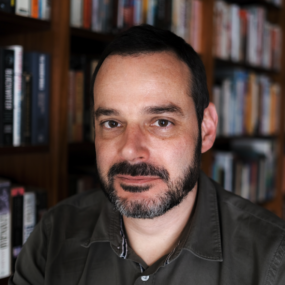
Julian Rademeyer
Director of the Civil Society Observatory of Illicit Economies in East and Southern Africa
PhD Candidate, Graduate Institute of International and Development Studies/ Legal Advisor, Civitas Maxima
Felix is currently writing a PhD at the Graduate Institute of International and Development Studies in Geneva on ‘Corporate crimes and the transnationalisation of alternative case-ending procedures: Towards a new transnational legal order on alternative enforcement?’
From summer 2018 onwards, Felix is a visiting fellow at the Dickson Poon Transnational Law Institute, King’s College London. He holds a law degree from Humboldt University Berlin and a Certificate in Transnational Law from the University of Geneva.
Felix works as a legal advisor at Civitas Maxima, a non-governmental and not-for-profit organization providing independent legal representation to victims of international crimes (with a focus on Liberia, Sierra Leone and Ivory Coast). His work primarily concentrates on the documentation and investigation of ‘corporate war crimes’ relating to the trade in conflict-minerals, and, where possible, the initiation/management of criminal and civil cases.
His main research project investigates the normative justification of Civitas Maxima’s strategic approach to help victims initiate criminal prosecutions before foreign domestic courts regarding international crimes committed extraterritorially. He has been advising the Legal Assistance Centre (LAC) in Namibia on a pro bono basis in relation to the promotion of international law, and constitutional and human rights law issues in the broader context of gender, discrimination and minority rights for several years.
Felix is a member of the International Network on Transnational Legal and Political Theory, and has recently been awarded the Davies Peace Project Grant (together with Livio Silva) for the project ‘Promoting Peace in Liberia through Criminal Justice Research and Cartoons’.
Felix is particularly interested in international and transnational economic crimes (and their interaction in the form of war-profiteering networks), and the role of corporations in transnational organized crime more generally. Currently, his main theoretical interest is in the concepts and methods relevant to transnational legal process studies from a criminal law and justice perspective.